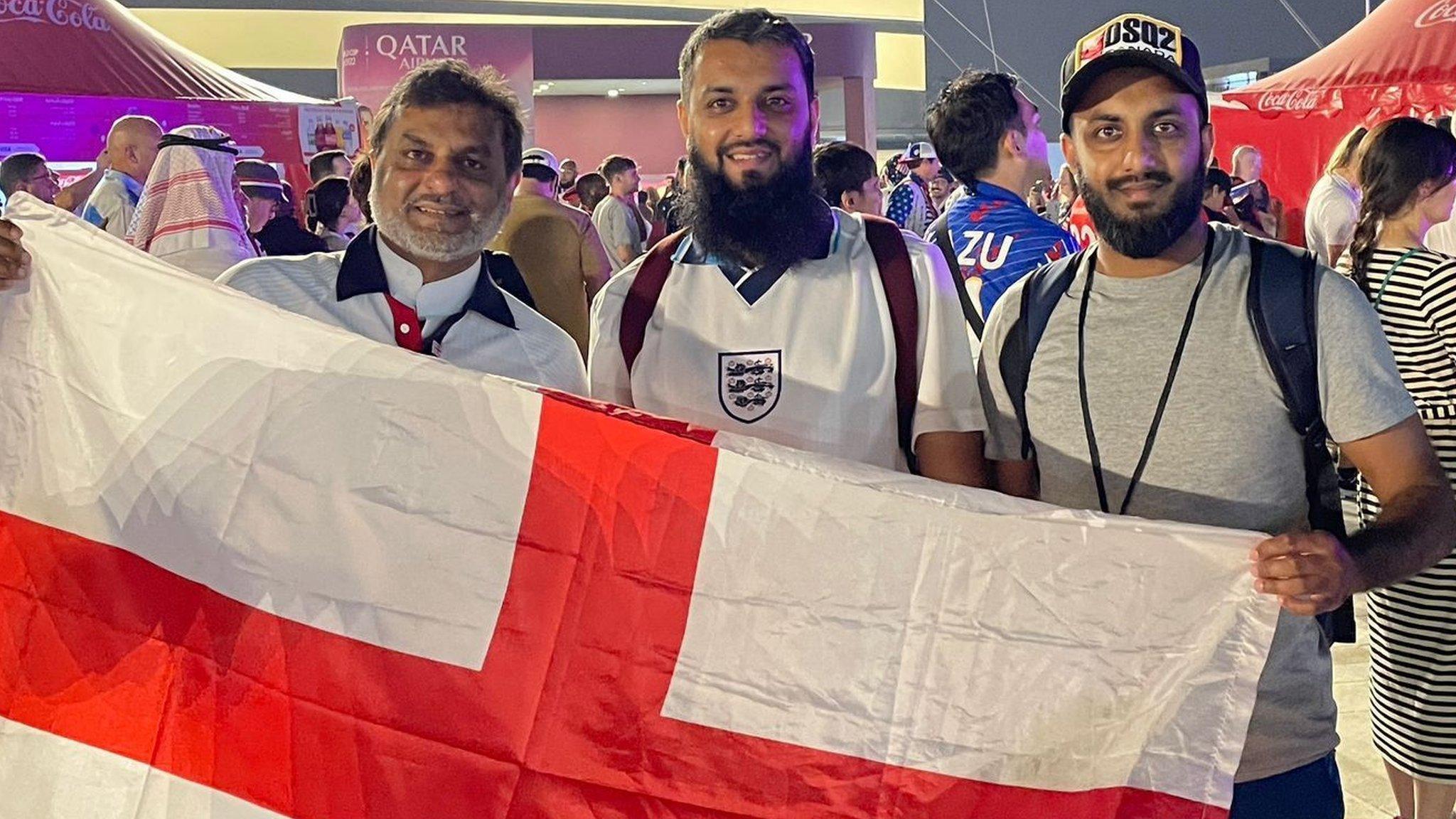World Cup 2022: TikTok brings football fever to millions of fans
- Published
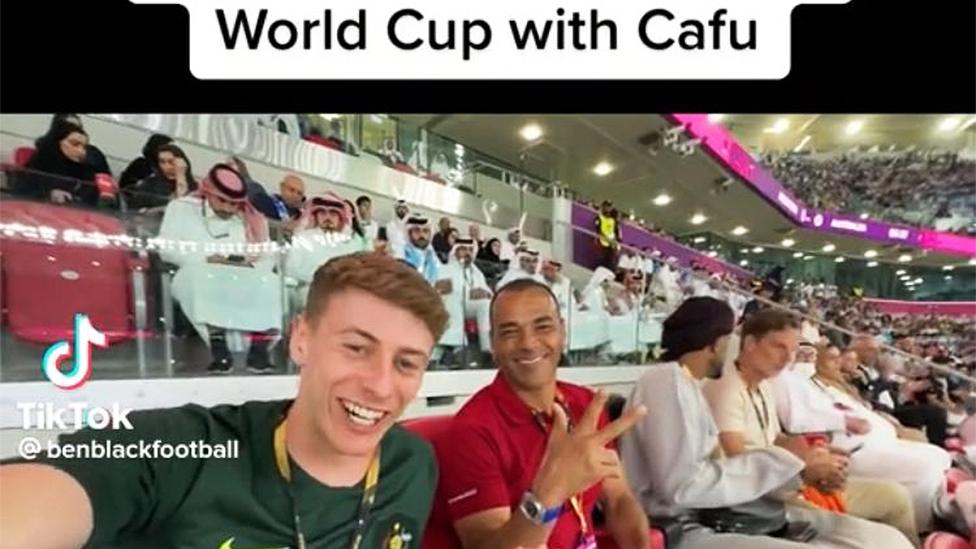
Ben Black is living the football dream after winning a competition
From Bukayo Saka's spelling school to team analysis and score predictions, our social feeds are showing us loads of content from the Qatar World Cup.
Videos under the #FifaWorldCup hashtag have been viewed over 12 billion times since the tournament started, according to new figures from TikTok.
Quarter-final opponents England and France have both picked up more than one million followers.
And it's not just team accounts growing online.
Ben Black has been going to every game in Qatar after winning a competition organised by the hosts, and been documenting his experience on TikTok.
The 24-year-old account has felt the World Cup effect with more than 170 million views over the course of the tournament so far.
"A bit of a ridiculous number when you think about it. It's showing a big portion of football fans what the World Cup is like and I think it's extremely powerful," he tells BBC Newsbeat.
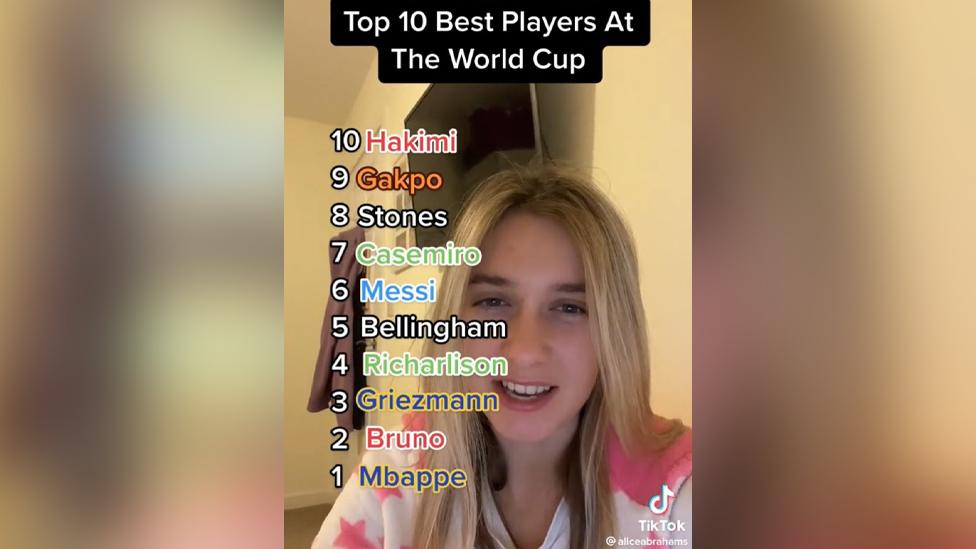
Alice has been analysing the tournament from her home
Away from the beaches and sand dunes, Alice Abrahams is following all the action with her analysis videos from the comfort of her home in Essex.
"It's such a good, positive atmosphere. I'm almost enjoying this World Cup more than the Russia one," the 22-year-old says.
'We respect each other'
Junior Pereira, 19, has gained over two million followers with his dance-style videos - but says he tries not to let the numbers get to him too much.
"There is that little competition of 'who does it slightly better? Who pulls in more views and fans?' But at the end of the day we're also just trying to do the same thing and we respect each other," he says.
"We talk about content ideas and congratulate each other too."
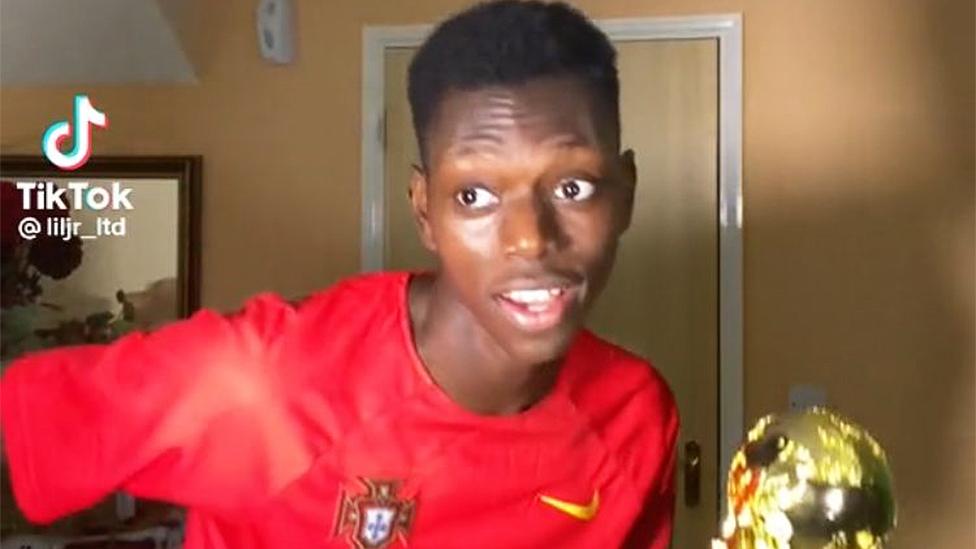
Junior says it's a friendly rivalry with other creators
But, just like the football, not everything goes to plan on TikTok either.
"There was a point [in the group stage] where Japan and Costa Rica were going to knock Spain and Germany out. I was getting ready to film a TikTok and was so excited - and then Spain went through," Alice says.
Junior adds: "I think all content creators felt the same in those 60 seconds - like yes, content!"
And there have been plenty of those spontaneous moments for Ben in Qatar too.
He went to the Brazil v Cameroon game in a Brazil shirt.
"All I see is Cameroon fans when I get to my seat. I'm the only person in my Brazil top but the fans started embracing me anyway.
"We ended up having a full-on party for 90 minutes."
The TikToks he made ended up being "nothing about the game" but the "random moments" of the wider experience.
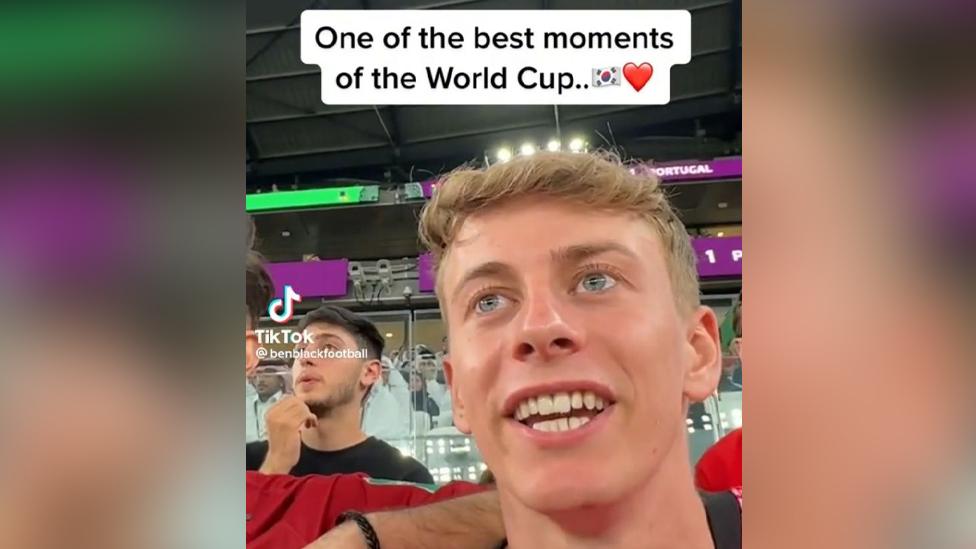
Ben has been documenting his experience of being in Qatar
Showcasing positive elements of the World Cup on TikTok are a contrast to some of the human rights controversies surrounding the tournament.
Alice admits that she went into the World Cup with a viewpoint that was "quite negative".
Qatar has been criticised for its ban on same-sex relationships and its treatment of migrant workers.
"But then I see people like Ben out in Qatar capturing footage of the stadiums and the vibes," she adds.

'A fertile time for online disinformation'
By Marianna Spring, disinformation and social media correspondent
This World Cup certainly hasn't been short of speculation and debate online. From the get-go, allegations that "fake" fans had been paid by Qatar to support England and other popular teams went viral.
I identified and tracked down several of the people in those videos. Those "fake" England fans I was able to speak to were people from India and Sri Lanka who live and work in Qatar. They told me they were committed fans and were delighted to be able to watch their favourite teams play. Their social media profiles, which have posted about these football teams for years, support this.
There's no evidence otherwise to support the allegation they were paid to pretend to support specific teams - and it's a claim World Cup organisers reject. Nonetheless, confusion still remains.
That's because it's a fertile time for online disinformation to go viral. This World Cup has been surrounded with controversies and it's just such a hot topic on social media, especially on TikTok.
The combination of hype and controversy means we all have to be careful we don't fall for evidence-free rumours. Interrogate who has shared videos and why. Look for clues about whether footage is old and, when it sparks a strong reaction, just pause before you share.
It's about separating fact from fiction, understanding what's happening and why - and piecing together the truth of this complex World Cup.


Follow Newsbeat on Twitter, external and YouTube, external.
Listen to Newsbeat live at 12:45 and 17:45 weekdays - or listen back here.
Related topics
- Attribution
- Published16 November 2022
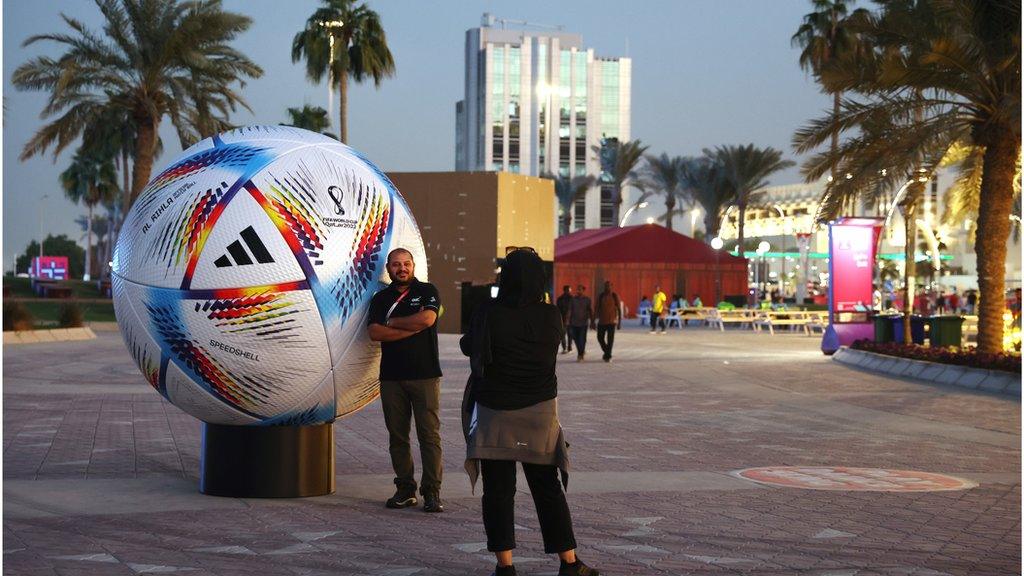
- Published21 November 2022
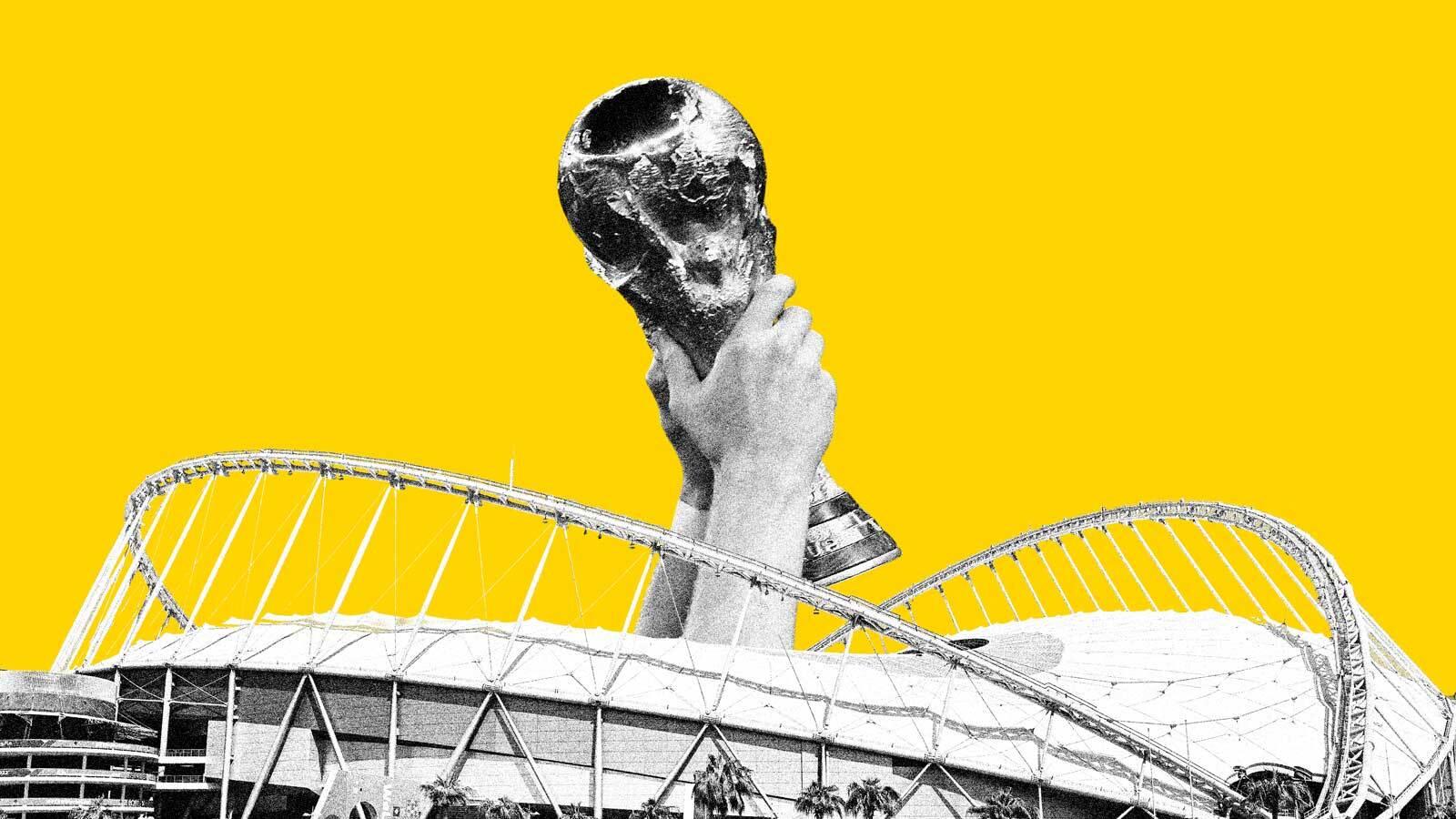
- Published3 December 2022
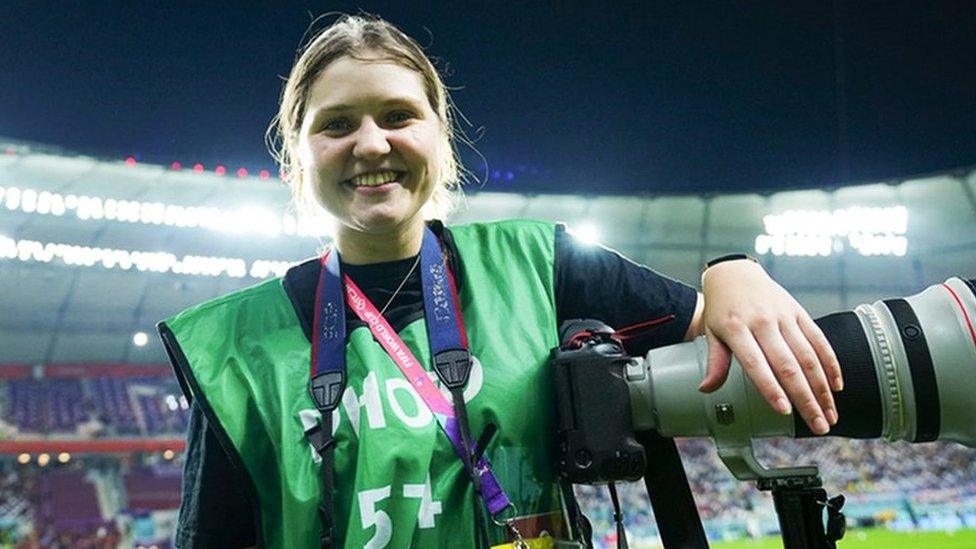
- Published18 November 2022
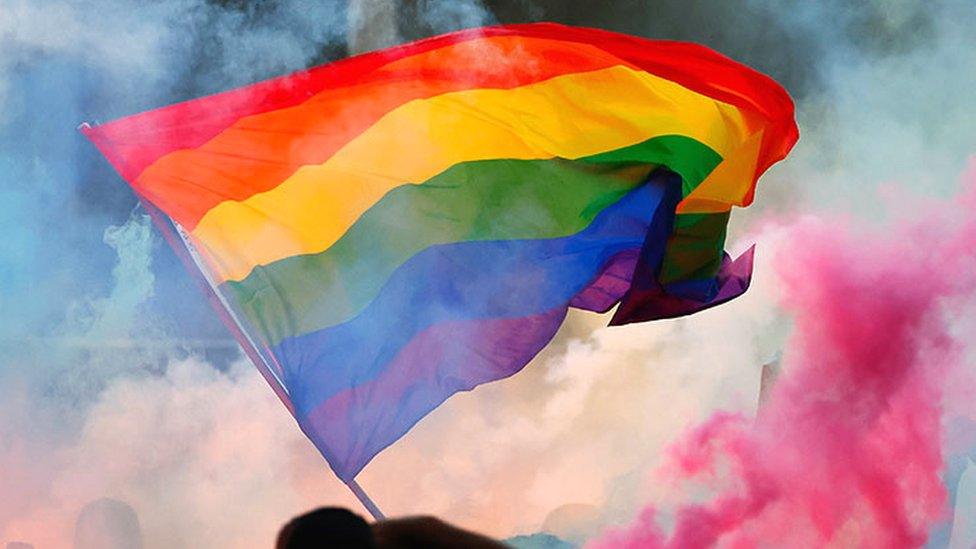
- Attribution
- Published7 December 2022
